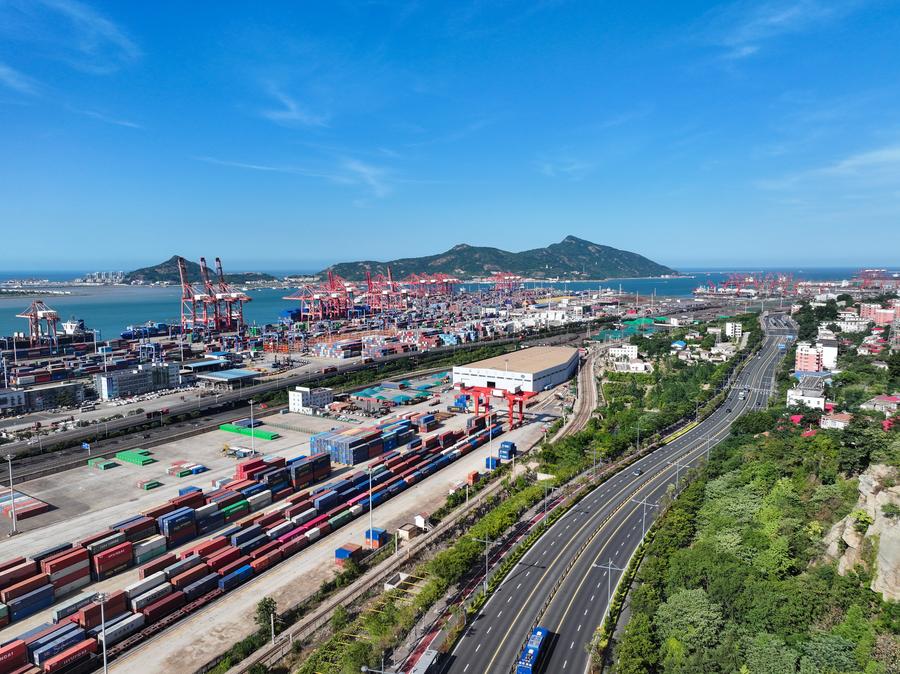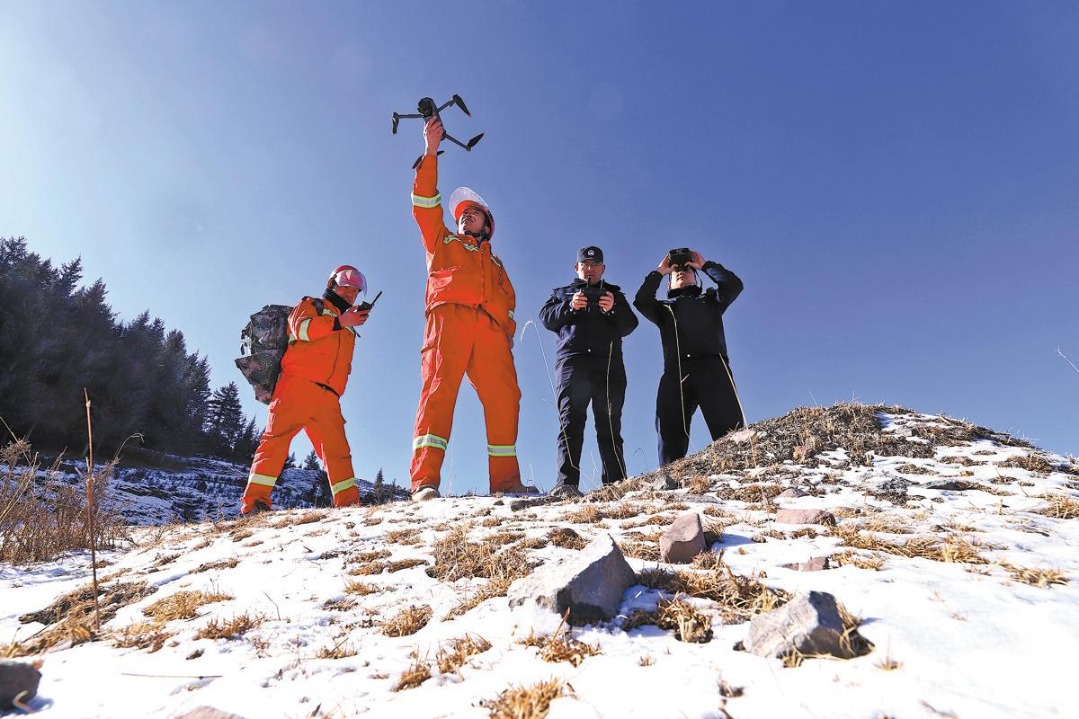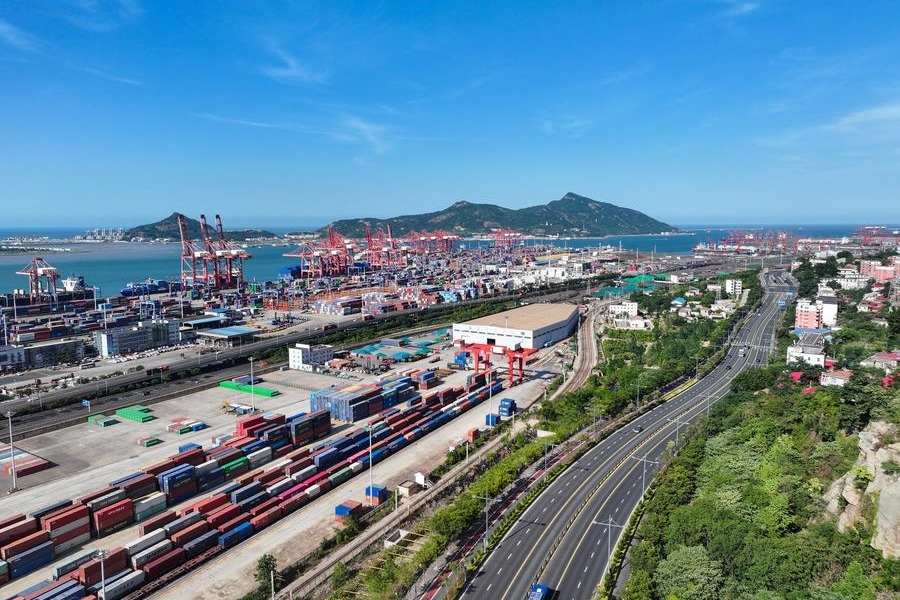Chinese-Kazakh energy cooperation a win-win


Amid the rapid changes in the global energy order, energy cooperation between Kazakhstan and China is gaining greater strategic significance. Kazakhstan, with its vast reserves of hydrocarbons and uranium, as well as its advantageous geographical location, has become a key partner of China in ensuring energy security. In turn, China is investing in Kazakhstan's energy infrastructure, which will help modernize the energy sector. Yet the Sino-Kazakh partnership faces some challenges, including geopolitical risks, lack of modern infrastructure and environmental issues.
An important part of the Sino-Kazakh partnership and collaboration is the development of transport and logistics routes, pipeline and railway infrastructure integration, oil refineries' modernization through innovative technologies, as well as the development of the chemical industry, nuclear energy sector including the construction of the first nuclear power plant in Kazakhstan, the adoption of green technologies, and creation of a secure digital energy corridor.
A logical extension of these efforts is the development of the "Trans-Caspian International Transport Route" from China through Kazakhstan to Europe, which will reduce the delivery time to 20-25 days, lower logistics costs, and enhance Kazakhstan's transit potential. Accordingly, China, under the Belt and Road Initiative framework, has invested in projects aimed at modernizing the railway routes, by building terminals through the Caspian Sea, upgrading rolling stock, digitalizing customs procedures and creating industrial zones.
Alongside the development of transport and logistics corridors, Kazakhstan has been leveraging its extensive network of main pipelines, spanning over 23,000 kilometers, including 15,255 km of gas pipelines and 8,015 km of oil pipelines. These pipelines pass through industrial regions, extraction zones as well as remote areas, leading to the borders of Kazakhstan's neighboring countries. The integration of the pipeline and railway infrastructure will improve supply management, make cross-border energy exchanges more efficient, strengthen energy connectivity across the Eurasian region, and make energy supply more reliable despite worsening climate change, increasing sanctions pressure and geopolitical instability, while consolidating Kazakhstan's position as a key energy hub between the East and West.
Kazakhstan's three major oil refineries have been easily meeting the domestic demand, and have the capacity to supply energy to Belt and Road countries such as Uzbekistan, Tajikistan, Kyrgyzstan and Afghanistan.
However, Kazakhstan's energy sector can become more efficient and profitable not by extracting more gas and oil but by promoting innovation, building a unified infrastructure network, and integrating energy clusters, which in turn will minimize losses and environmental risks, boost revenues, better safeguard Kazakhstan's energy and industrial sovereignty, and contribute to the development of the Belt and Road Initiative. This will create even more attractive conditions for Chinese investment.
The two sides attach great importance to deepening their cooperation in the nuclear energy sector. In fact, Kazakhstan has said it is keen on building its first nuclear power plant jointly with China. Kazakhstan's Atomic Energy Agency Chairman even met with Dong Baotong, China's deputy head of the Ministry of Ecology and Environment and head of the National Nuclear Safety Administration. At the meeting, the two sides said they will identify the priority areas of collaboration, nuclear power plant construction, and development of a full nuclear fuel cycle.
But the successful implementation of large-scale projects, including those on nuclear energy and green technologies, is impossible without establishing a foolproof security system. Given the growing cross-border risks, from sabotage to cyberattacks, the creation of a unified digital security framework covering both traditional and alternative energy sources has become a necessity.
Also essential is the transfer of technologies in the transport and logistics sector, modernization of the oil and gas sector, development of the solar and wind power sectors, and generation of nuclear energy for peaceful purposes. For that, however, establishing digital monitoring and early warning mechanisms, integrating anti-drone solutions, and analyzing intelligent data is essential.
Amid intensifying geopolitical competitions and rapid transformation of the technology sector, there is a pressing need to establish a secure energy corridor — a comprehensive security system covering the full spectrum of threats, from physical protection of facilities to cybersecurity and intelligent monitoring.
Due to the growing challenges, the systematic development of the workforce is needed in the following key areas: cybersecurity, critical infrastructure security, AI and robotic systems' security, digital platform management, intelligent analytics, energy sector security, environmental monitoring and response to technological threats.
This, in turn, requires developing modern educational programs, establishing specialized training centers and academies, organizing joint training programs for Kazakh and Chinese specialists, including creating laboratories, and increasing exchanges of technologies and knowledge. Continuous investment is also required to build a sustainable energy partnership between Kazakhstan and China.
Besides, joint technological initiatives between Kazakhstan and China are deepening trust and stability in energy cooperation under the Belt and Road Initiative framework.
Projects in the "Digital Silk Road" hold particular promise, as they are aimed at creating a unified inter-regional security framework. Ahead of the second China-Central Asia Summit, to be held in Kazakhstan's capital of Astana, participating countries of the Belt and Road Initiative are entering a new phase of strategic cooperation.
The Astana summit is an opportunity for countries, companies, and regional and international organizations to reaffirm their commitment to innovation, security, and shared prosperity. In particular, the summit is an opportunity to breathe new energy into the Silk Road.
Kazakhstan offers the world, including China, not just a transit route but also a platform for synergy among countries and businesses, paving the way for mutual benefit.
The author is head of the Digitalization Center for Security Operations at the Special Protection Unit Service of KMGSecurity LLP in Astana. The views don't necessarily reflect those of China Daily.
If you have a specific expertise, or would like to share your thought about our stories, then send us your writings at opinion@chinadaily.com.cn, and comment@chinadaily.com.cn.































